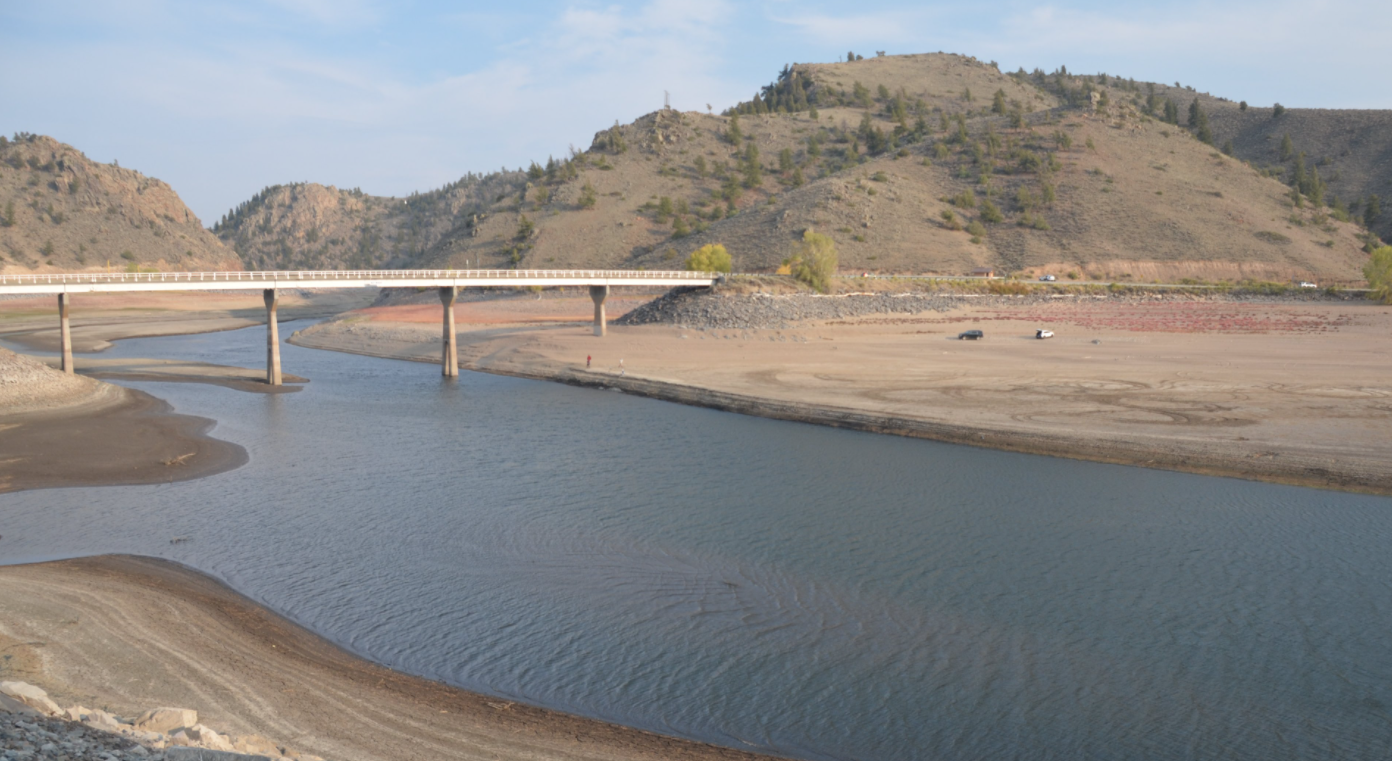Hickenlooper-Barrasso bill aims to reauthorize Colorado River water conservation plan
U.S. Sens. John Hickenlooper and John Barrasso are teaming up on legislation to help the upper basin states of the Colorado River in their quest to meet the demands by the Bureau of Reclamation to conserve water.
The legislation from the Denver Democrat and Wyoming Republican would reauthorize the System Conservation Pilot Program through 2026, to offer Colorado River water users payment in exchange for voluntarily water conservation. According to Barrasso, it would also allow for “development and testing of innovative responses to drought conditions” in the Colorado River Basin.
The effort is known as the Colorado River Basin Conservation Act, and was approved by the Senate Energy and Natural Resources Committee as an amendment to the Salton Sea Projects Improvements Act.
The legislation also comes as earlier this week, the Upper Colorado River Commission made up of Colorado, Wyoming, Utah and New Mexico sent a letter detailing a five-point plan to Camille Touton, commissioner of the Bureau of Reclamation.
It was Touton who started an uproar among the seven states of the Colorado River — which also include the lower basin states of Arizona, Nevada and California — when she announced in a Senate committee hearing on June 14 she would require the states to come up with plan to conserve 2 million to 4 million acre-feet of water, and to submit that plan in 60 days, roughly mid-August.
The amount of water Touton is looking for is more than the upper basin states use in a calendar year, estimated at around 3.5 million acre-fee (MAF). One acre-foot of water is about 352,000 gallons, the amount it would take, for example, to fill the football field of Mile High Stadium with one foot of water.
Touton’s requirement is to protect water levels in Lake Mead and Lake Powell, which both supply hydroelectric power. Touton’s announcement came with a warning: if the states do not come up with a plan, the Bureau of Reclamation would use its authority to take action on its own.
The UCRC letter claims the upper basin states have already cut back on their water consumption and their options for doing more are limited.
“Our water users already suffer chronic shortages under current conditions resulting in uncompensated priority administration, which includes cuts to numerous present perfected rights in each of our states,” the UCRC letter stated.
The five-point plan includes:
- Amending and reauthorizing the System Conservation Pilot Project legislation enacted in 2014. The four-year pilot was intended to look at temporary, voluntary and compensated measures to help keep water levels up in Lake Powell, to protect the Colorado River compact entitlements and to ensure continued hydroelectric power production. The pilot program was succeeded by the 2019 drought contingency plan, which recently resulted in water releases down the Colorado to Powell from Blue Mesa and Navajo reservoirs in Colorado and Flaming Gorge in Utah.
- Developing a 2023 drought response operations plan by August, to be finalized by next April, which would determine the “effectiveness of potential releases from upstream Initial Units to protect critical elevations” at the Glen Canyon dam on Lake Powell.
- Considering an upper basin demand management program, which the Colorado Water Conservation Board had been looking at but put on hold in March, citing lack of progress by the other upper basin states. All four basin states must agree on a demand management plan, which borrows from the 2014 pilot’s work on temporary, voluntary and compensated measures, primarily to pay farmers and ranchers to conserve water.
- Implementing the bipartisan infrastructure law signed by President Biden in January, which would put funding into the upper basin drought contingency plan, as well as measure, monitor and report on water use.
- Continuing strict water management and administration within the available annual water supply in the upper basin states. That could include expanding intrastate water conservation programs, as well as regulation and enforcement tied to the states’ prior appropriation doctrines.
The UCRC letter pleads water poverty, pointing out depletions from the Lower Basin states and Mexico are twice the depletions in the Upper Basin states.
“Therefore, additional efforts to protect critical reservoir elevations must include significant actions focused downstream of Lake Powell.”
After the release from Blue Mesa late last year, the reservoir dropped to at its lowest point since it was originally filled in 1968.





